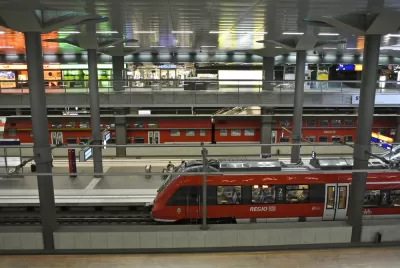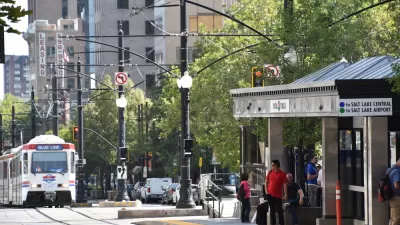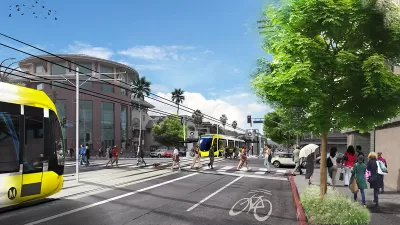Berlin is committing to a huge investment in its public transit infrastructure. Kiwi-living-in-Berlin author and lawyer Leah Hamilton writes about it.

Berlin will spend $31 billion through 2035 on its public transit system. That’s more than many countries. The biggest changes will happen very fast—by 2023—through an expansion of its urban rail network. Studies have shown Germans prefer rail over bus lines. There will be extensions to both the underground (U-bahn) and above ground (S-bahn) light rail lines. As for buses, the system will be converted to mostly electric by 2030. The investment will also ensure that public transit is fully accessible for disabled persons. The major transit authorities involved include Deutsche Bahn (DB) and Berliner Verkehrsbetriebe (BVG).
Previously, Berlin had lagged other German cities in transport infrastructure. However, with a booming economy and growing population, there has been a popular push to fund public transit improvements. Politics, always important when it comes to transit, have also aligned for transit. Notes Hamilton:
The reason behind these changes is partly due to the presence of the Green Party, SPD, and Die Linke in Berlin’s governing coalition, with all three parties in favour of making Berlin a greener, more accessible city. As part of this effort, political support is soundly behind the improvement of the public transport system as a whole.
For more details and images about what Berlin has planned, please see the source article.
FULL STORY: Berlin’s Huge Push to Improve Public Transit

Maui's Vacation Rental Debate Turns Ugly
Verbal attacks, misinformation campaigns and fistfights plague a high-stakes debate to convert thousands of vacation rentals into long-term housing.

Planetizen Federal Action Tracker
A weekly monitor of how Trump’s orders and actions are impacting planners and planning in America.

In Urban Planning, AI Prompting Could be the New Design Thinking
Creativity has long been key to great urban design. What if we see AI as our new creative partner?

California Creates Housing-Focused Agency
Previously, the state’s housing and homelessness programs fell under a grabbag department that also regulates the alcohol industry, car mechanics, and horse racing.

Chicago’s Ghost Rails
Just beneath the surface of the modern city lie the remnants of its expansive early 20th-century streetcar system.

Baker Creek Pavilion: Blending Nature and Architecture in Knoxville
Knoxville’s urban wilderness planning initiative unveils the "Baker Creek Pavilion" to increase the city's access to green spaces.
Urban Design for Planners 1: Software Tools
This six-course series explores essential urban design concepts using open source software and equips planners with the tools they need to participate fully in the urban design process.
Planning for Universal Design
Learn the tools for implementing Universal Design in planning regulations.
planning NEXT
Appalachian Highlands Housing Partners
Mpact (founded as Rail~Volution)
City of Camden Redevelopment Agency
City of Astoria
City of Portland
City of Laramie





























